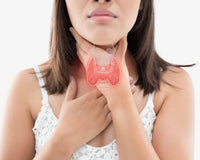Hair loss refers to the recession or loss of hair from any part of the body, most commonly the scalp of the head. In most cases, women lose hair due to increasing age, hereditary conditions, and hormonal changes from pregnancy and menopause. In the following article we discuss hair loss in women, hair loss during pregnancy, and hair loss treatments for women. We also answer the questions what causes hair loss in women and what is female pattern baldness.
Hair Loss In Women
Hair loss in women occurs when a woman experiences unexpected loss of significant amounts of hair. Women lose between 50 and 100 hairs per day as a part of a natural process called hair shedding. Losing more than 100 hair per day may be the result of stress, pregnancy, or an underlying medical condition.
What Is Hair Loss?
Hair loss refers to the recession or loss of hair from any part of the body, most commonly the scalp of the head. Hair loss can be the result of aging, hereditary conditions, hormonal changes, or medical conditions. Although hair loss is more common in men due to male pattern baldness, many women also experience some form of hair loss during their life.
What Causes Hair Loss In Women?
There are many myths about what causes hair loss in women. Contrary to popular belief, most women’s hair loss is not usually the result of excessive shampooing, dandruff, excessive brushing, or wearing hats or wigs. While these activities and factors can contribute to hair loss in women, they are usually not the underlying cause.
In most cases, women experience hair loss because of increasing age, medical conditions, pregnancy, menopause, or restrictive hairstyles which put stress on the hair.
Hair Loss During Pregnancy
Hair loss due to pregnancy is very common, affecting between 40 and 50 percent of pregnant women. Hair loss that results from pregnancy is sometimes referred to as telogen effluvium.
Hair loss from pregnancy usually begins to occur shortly after delivery, and can continue for four to five months. During pregnancy, an increased number of hairs go into the resting phase of the hair cycle. The resting phase usually lasts about 100 days, and in some cases, women can lose 100 hairs a day during this phase. Once the resting phase is over, hair loss should slowly stop and hair will regrow at a normal rate.
A diet high in fruits and vegetables, supplements of Vitamins B and C, and avoiding hairstyles such as pigtails and cornrows may be helpful in mitigating hair loss from pregnancy. However, it is advisable for women to consult with a healthcare professional to determine the best path towards hair regrowth after pregnancy.
Hair Loss From Thyroid Disorder
Thyroid disorders can range from harmless enlarged glands to serious forms of thyroid cancer. Severe and prolonged hyperthyroidism can cause hair loss in women. It is unusual for mild thyroid disorders to cause any kind of noticeable hair loss.
Hair loss that is the result of a thyroid disorder can involve loss of hair across the entire scalp. Regrowth of the hair can be achieved if the thyroid problem is successfully treated. However, this treatment can often take many months, and complete hair regrowth is not always guaranteed.
Do Hair Products Cause Hair Loss?
Some popular women’s hair products have been linked to a type of hair loss called traction alopecia. Traction alopecia occurs when certain movements place prolonged and repetitive tension on the part of the hair follicle closest to the scalp. Using excessive force while washing or conditioning hair can also put unwanted stress on the hair.
Shampoos, conditioners, and other hair products may contain ingredients that can be harmful to hair health when used often over a long period of time. Formaldehyde, a chemical compound often found in hair products and used in salon hair treatments, has been reported to cause hair loss and irritation of the scalp.
Does Menopause Cause Hair Loss in Women?
During menopause, the amounts of the hormones estrogen and androgen change in the body. Hair loss during menopause is usually the result of this expected hormonal imbalance. While hair loss can occur, most women experience overall hair thinning rather than considerable hair loss during menopause.
How Common is Hair Loss in Women?
Although more men experience hair loss over their lifetime than women, often due to a condition called male pattern baldness, women do lose hair over time. It is estimated that over 50% of women will experience noticeable hair loss within their lifetime.
Any woman can experience hair loss, however, it is most common in women who meet the following criteria:
- Women who have just given birth
- Women over 40
- Women who recently underwent chemotherapy
- Women who use harsh chemicals on their hair.
- Menopausal women
Female Pattern Baldness
Female pattern baldness is a type of hair loss in women often caused by hormonal changes and aging. It occurs when hair follicles naturally shrink over time, leading to shorter and finer hair. Eventually, the follicle may fail to continue producing new hair, leading to hair loss and balding.
Female pattern baldness usually happens as a side effect of increasing age, but it can also be a side effect of certain medications. It can be more prevalent and occur sooner if there is a history of female pattern baldness or male pattern baldness within the family.
Sudden Hair Loss In Women
Unlike female pattern baldness, some hair loss in women can be sudden. Most sudden hair loss is short-lived, and is an expected side effect of pregnancy or a thyroid disorder. In rare cases, sudden hair loss may be linked to a more severe health condition.
Hair Loss In Women Treatments
Treatment for women’s hair loss can come in many forms including minoxidil, anti-androgen drugs, and corticosteroid injection.
Minoxidil
Minoxidil is the only prescription medication approved by the FDA for treating female pattern baldness and female hair loss. It works by shortening the telogen, or resting phase of the hair cycle and lengthening the anogen, or growth phase. Minoxidil stimulates hair follicles to get them to enter the anagen phase of the hair cycle sooner than they naturally would. This increases hair growth across the head and promotes healthy hair.
Anti-androgens
Anti-androgens mitigate the effectiveness of androgens such as testosterone which speed up hair loss.
Corticosteroid Injection
Corticosteroid injections are effective at treating hair loss that occurs when the body’s immune system starts fighting hair follicles. This occurs as part of a hair loss condition known as alopecia areata. Corticosteroid injections are usually administered directly into the area of the body where hair loss is most prevalent.
Summary
Hair loss in women usually occurs as a side effect of increasing age, pregnancy, menopause, or an underlying medical condition. During pregnancy, some women can lose up to 100 hairs per day for four-to-five months.
Women can also lose hair from the use of harmful hair products or restrictive hairstyles such as cornrows. Women’s hair loss can be treated through prescription medications such as Minoxidil.








